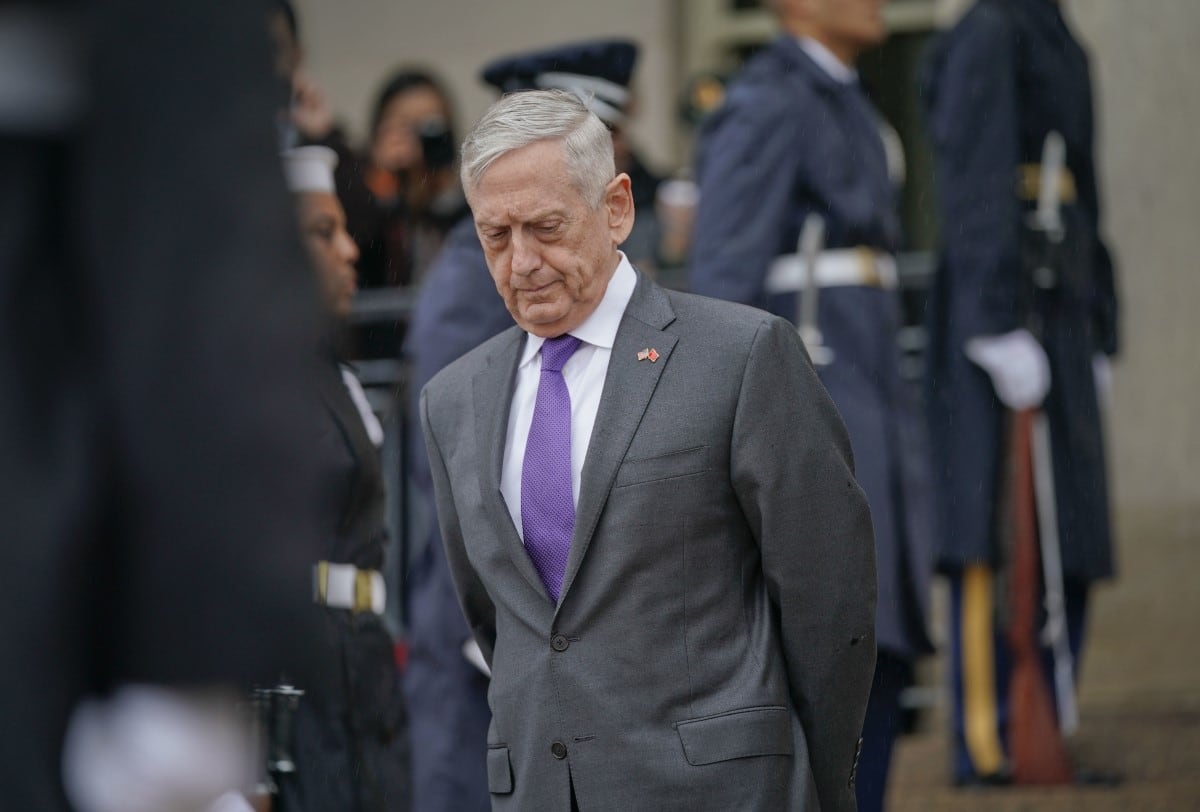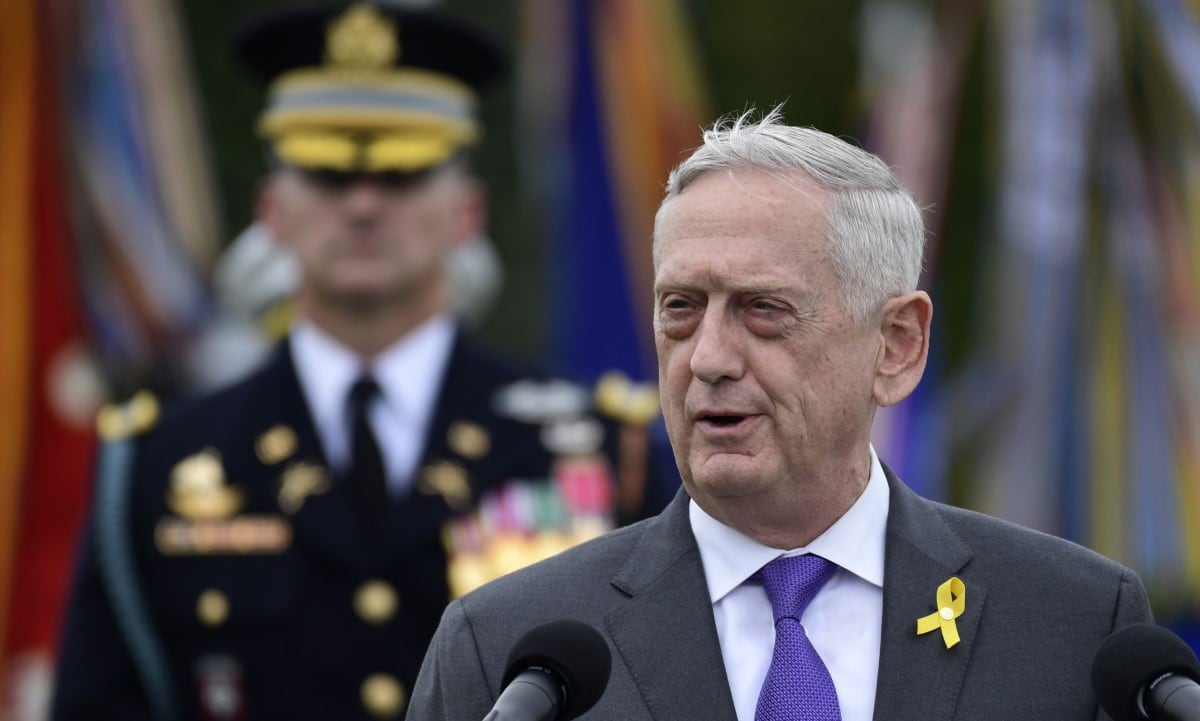WASHINGTON — Replacing Jim Mattis, arguably the best known and most revered member of President Donald Trump’s Cabinet, won’t be an easy task for the commander-in-chief.
The defense secretary was confirmed 99-1 by the Senate just hours after Trump’s inauguration and widely viewed on Capitol Hill as a calm, reasoned voice on national security for the often tumultuous administration.
On Thursday, Mattis announced he will step down from the top Pentagon post after a series of policy disagreements with the president. His departure is scheduled for February, a timeline he hopes will provide a smooth transition to new military leadership.
RELATED

But who that will be remains a mystery. Already one top candidate, former Army Vice Chief of Staff Jack Keane, has said he is not interested in the job.
Trump tweeted on Thursday that “A new Secretary of Defense will be named shortly” but offered no other details.
Here’s a look at some of the likely names being considered:
Patrick Shanahan
Shanahan, the deputy secretary of defense, serves as Mattis’ number two and will likely play a key role in the transition to the next Pentagon administration.
He’s a longtime Boeing executive with experience in both the military and commercial sides of the company. Shanahan had no government experience prior to taking his current job, and has focused almost exclusively on internal reforms while in the building.
That included taking the lead on the creation of Trump’s new Space Force, meaning he has had significant face time with both Trump and Vice President Mike Pence in recent months. That kind of familiarity has been a major factor in past White House nominations.
But how serious a candidate he is remains unclear. His appointment would be less flashy than other potential names, but could help calm some fears among Senate Republicans worried about dramatic national security policy shifts with the departure of Mattis.
Tom Cotton
The Republican Arkansas senator has been a rumored pick for a Pentagon leadership post for months. At 41, he could become one of the youngest Cabinet appointees in recent history and the first veteran of the Iraq and Afghanistan wars to serve as defense secretary (he deployed to both as a soldier in the early 2000s).
Although Cotton has been a reliable supporter of Trump’s defense policies, he did break with the president on the announcement of plans for drawdowns of U.S. forces overseas. Given that the issue was a driver behind Mattis’ resignation, that makes his selection problematic.
It’s also unclear whether Trump would consider tapping a member of the Senate, given the tenuous balance of power in the chamber. Removing Cotton opens up the possibility of a less enthusiastic Republican supporter in his place, and potential problems getting nominees confirmed in the chamber.
Richard Spencer
The current Navy secretary is a former Marine aviator and career financier who has long had ties to the Washington defense establishment.
In his current role he has played up his business background, finding ways to apply civilian industry best practices to make Navy processes more efficient. Recently he has been mining Southwest Airlines' best practices to streamline aircraft maintenance.
He took a similar approach to try and fix Navy culture in the wake of 17 sailor deaths in 2017, the result of preventable collisions. Spencer reached out to major industrial leaders such as major shipping companies to see how they dealt with major accidents.
That type of work syncs nicely with government efficiency goals outlined in the past by Trump, and could make him an attractive option for the post.
RELATED

Heather Wilson
Trump could make the move to name the first-ever female defense secretary and tap Wilson, the current Air Force civilian leader, to fill the role. She’s an Air Force veteran and former member of Congress would bring her political and business background to the job of running the military.
But rumors swirled that Wilson may be fired from her current job back in October, when she sparred with administration officials over the creation of a new Space Force. She had been a vocal critic of the idea of a separate military service for space, but has fallen in line with the official administration position on the issue in recent months.
Wilson also boasts a close relationship with Pence, which could help elevate her name in any defense secretary discussions at the White House. However, the relationship between Wilson and Shanahan has been more contentious, which could lead to conflict if both are under consideration and still overseeing Pentagon operations as Mattis steps away.
Someone completely unexpected
When Trump fired then-Veterans Affairs Secretary David Shulkin, he shocked the veterans community by tapping relatively unknown White House physician Rear Adm. Ronny Jackson for the post. That nomination ultimately failed, but showed that Trump isn’t afraid to go with unconventional and unexpected names, even for high-level Cabinet jobs.
Could controversial former White House Chief Strategist Steve Bannon (a Navy vet) get a look? Former Treasury Under Secretary David McCormick and former Missouri Sen. Jim Talent have also both been floated as potential candidates. Energy Secretary Rick Perry, an Air Force vet, has had his name connected to numerous other positions within the administration.
Trump’s recent decision to name Army Chief of Staff Gen. Mark Milley over Mattis’ preferred pick shows that the president isn’t worried about looking in unexpected areas for his top military leaders.
Reporters Joe Gould and Tara Copp contributed to this story.
Leo covers Congress, Veterans Affairs and the White House for Military Times. He has covered Washington, D.C. since 2004, focusing on military personnel and veterans policies. His work has earned numerous honors, including a 2009 Polk award, a 2010 National Headliner Award, the IAVA Leadership in Journalism award and the VFW News Media award.
Aaron Mehta was deputy editor and senior Pentagon correspondent for Defense News, covering policy, strategy and acquisition at the highest levels of the Defense Department and its international partners.
David B. Larter was the naval warfare reporter for Defense News.








